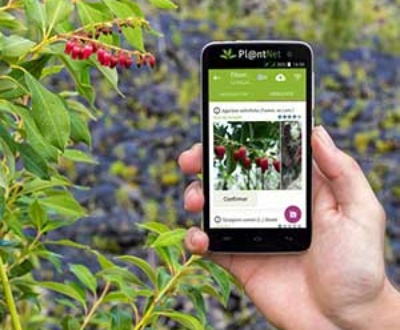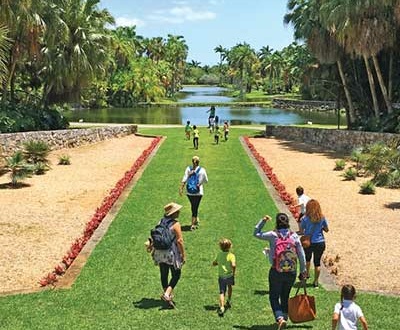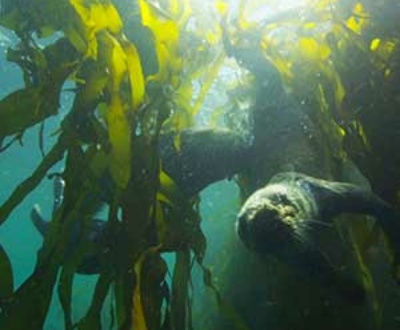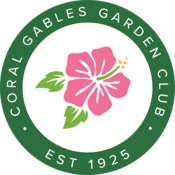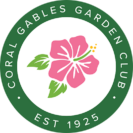Hi all!! I hope you are enjoying your summer. Last month we started to look at the University of Florida extension service list of the principles we need to follow to create a “Florida Friendly Yard”. We talked about right plant/right place, efficient watering, appropriate fertilizing, and mulch.
In this issue I want to concentrate on what we do to control pests in our gardens. Because boy DOES IT MATTER what we put on our yards.
You certainly cannot think of attracting butterflies and birds to your garden if you are using chemicals. This also kills the beneficial insects which keep the pests in check.
Work With Nature
Probably in my mind the first idea we need to get rid of is the need to control nature. Because the reality is that if we let nature do its work naturally without intervention—nature often times controls itself!! If we leave things alone we allow nature to make use of the natural controls in the system. What we need to do is not control nature, we need to work with nature.
What do I mean? Well nature already has built in checks and balances if we allow them to work. We don’t get over run with caterpillars for example because there are birds and other things that eat caterpillars and this keeps them in check. So nature has these checks and balances built into the system. As a result, the first recommendation of the extension service is to do nothing.
Don’t Poison Your Yard
But this natural check on things only works if you are not poisoning your yard and killing off the beneficial insects that keep the harmful ones in check. That’s kind of a drastic statement isn’t it? Poisoning your yard. It doesn’t sound like something you’d like to do right? And for sure it’s not good for your family and pets either.
But this in fact can be what we are often doing when we try to control weeds and pests. The most glaring example of this is a product called Round Up. I’m sure you’ve seen it advertised on TV. In August, a jury ruled that Round Up had caused a man’s terminal cancer and ordered its maker, Monsanto, to pay $289 million in damages to the man. There are now a raft of other cancer lawsuits pending about Round Up. Do you want this in your yard?
You may not even realize you are putting pesticides on your garden. Think about the common product called “weed and feed” for your lawn. What’s in there that is killing the weeds? The other thing is the poison you put on your yard gets into the whole food chain. You certainly cannot think of attracting butterflies and birds to your garden if you are using these chemicals. As I mentioned this also kills the beneficial insects which keep the pests in check. For example—lady bugs eat scales, mealy bugs, and aphids.
Earwig insects eat chinch bugs. AND for sure if you use a lawn service you need to look into what they are putting on your yard!!!!!!
What Natural Solutions Do We Have?
The University of Florida extension service has a raft of information you should tap into. First of all, they offer a free service where they will analyze your problem—it could be something eating your plant, or mold, or fungus. Their phone number is 305-248-3311. Their address is 18710 SW 288th Street, Homestead, Fl 33030. Their website is: sfyl.ifas.ufl.edu/Miami-dade. They also have a raft of booklets on all kinds of garden topics.
They have a very good booklet on this very topic titled: Natural Products for Managing Landscape and Garden Pests in Florida. You can also access the Organic Materials Review Institute (OMRI) website https://www.omri.org/omri-lists/download to find products that are acceptable in organic plant production.. Some categories of natural pest management are oils—mineral oils and citrus oils and neem oil, insecticidal soap, plant extracts like pyrethrum extracted from a type of chrysanthemum, pepper oils, and mineral insecticides like diatomaceous earth, sulfur, iron. There are microbial insecticides as well. BT is an example of this.
Now you have a lot of information and a lot of choices of ways to control pests and plant problems without harming you or the environment. And there are a bunch of home remedies you can mix up as well.
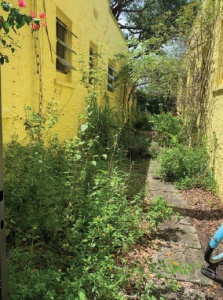 In the picture to the right, we see lantana, two types of native salvia pink and red, lemon grass, and climbing roses. The roses are old roses so they don’t need a lot of fussing like hybrids, plus the added bonus is that they have a scent!
In the picture to the right, we see lantana, two types of native salvia pink and red, lemon grass, and climbing roses. The roses are old roses so they don’t need a lot of fussing like hybrids, plus the added bonus is that they have a scent!
What Other Positive Things Should We Be Aware Of?
I don’t know about you but I find so much of the new information we are getting about climate change VERY depressing. It seems so dire and nobody seems to be doing much about it. So I get really excited when I see good news and I want to share some:
Research Shows That a Trillion Trees Could Be Planted
New research estimates that a world-wide planting of trees could remove 2/3rds of all the emissions that have been pumped into the atmosphere by human activities. This can be done without encroaching on cropland or urban areas.
Put That Cow On A Diet
The planets 1.5 billion ruminants like cows and sheep emit methane equivalent to 7.1 billion tons of carbon dioxide. Australian scientists have discovered that adding just 2%of a native Australian seaweed to cows feed reduced methane output so much it became virtually undetectable.
WE CAN MAKE A DIFFERENCE!!!
About the Author

Linda Lawrence Waldron currently writes the Green Gables column in Gables Living Magazine. Linda was Chairman of the Garden Club's Coral Gables Library Butterfly Garden Committee.
Sign up here for email notifications about new Green Gables articles!
More from our blogs
See all postsRecent Posts
- April 2023 April 1, 2024
- Good News on Environmental Plastics February 1, 2024
- Material World / Plant World January 1, 2024
Leave a Comment cancel
This site uses Akismet to reduce spam. Learn how your comment data is processed.





